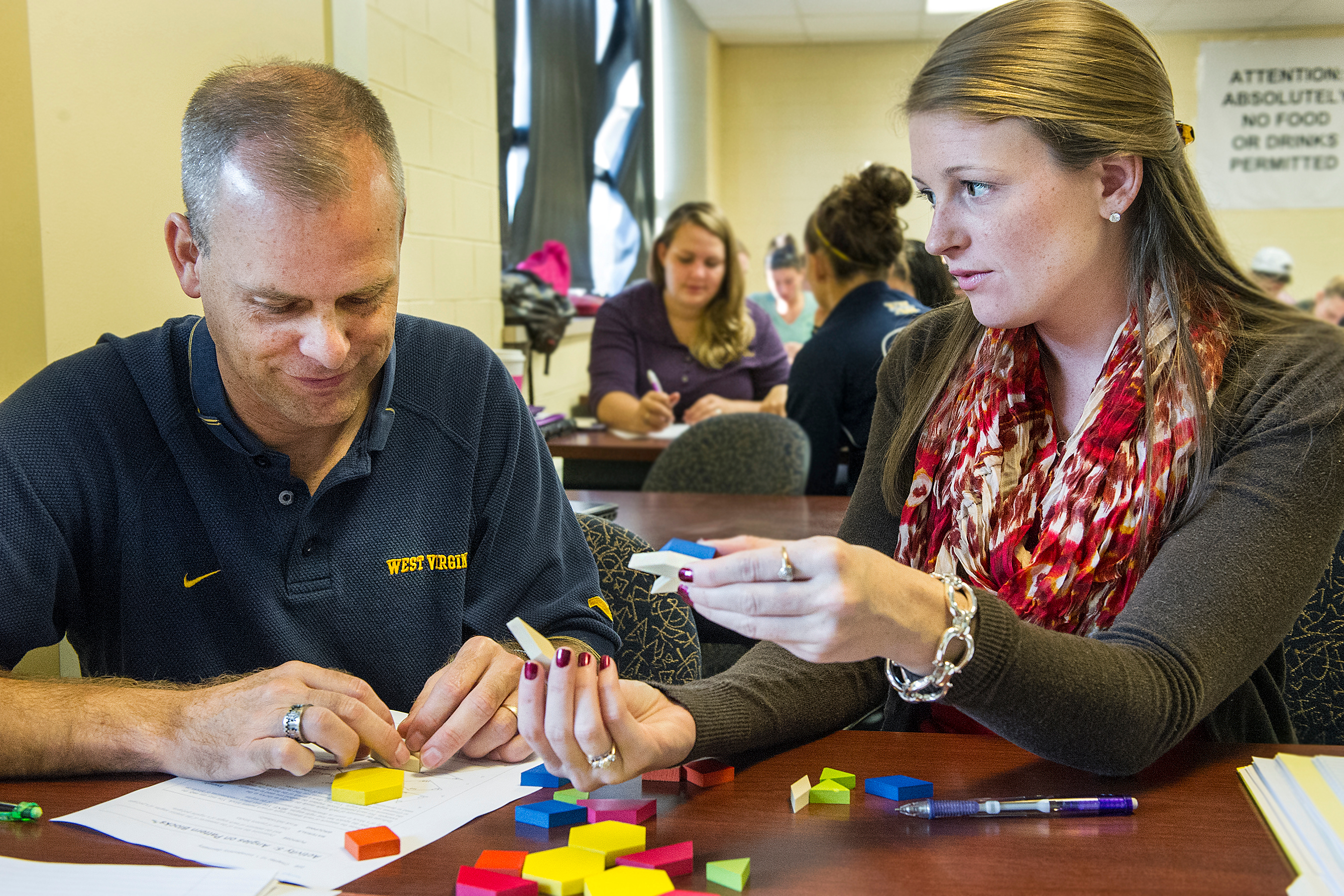One of the keys in moving West Virginia’s economy forward is building a workforce capable of the performing the technology-laden jobs of the future, but that can’t happen until the educational system instills those skills in students.
 West Virginia University is committed to providing high school teachers with the training and expertise to do just that through WVUteach, an innovative STEM educator preparation program supported by a $1.45 million grant from the National Math and Science Initiative.
West Virginia University is committed to providing high school teachers with the training and expertise to do just that through WVUteach, an innovative STEM educator preparation program supported by a $1.45 million grant from the National Math and Science Initiative.
And now, through a new $1.2 million grant from the National Science Foundation, WVUTeach will create an ambitious partnership with the Doddridge and Marion County School districts to support at least 25 new high school teachers over the next four years expanding WVUteach’s existing partnerships with five West Virginia districts.
John Stewart, associate professor of physics and astronomy in the Eberly College of Arts and Sciences, will serve as principal investigator on the five-year grant.
“Our goal with this partnership is to build the educational infrastructure of West Virginia to transform West Virginia,” Stewart said. “As our state strives to transition to a 21st century economy, we need to create new STEM jobs to replace the jobs we’re losing. Educating excellent STEM teachers is the first, crucial step.”
The team named on the grant, all of whom will make the new targeted teacher preparation program a success, also includes:
· Gay Stewart, director, WVU Center for Excellence in STEM Education.
· Matthew Campbell, assistant professor, Curriculum and Instruction/Literacy Studies.
· Nancy Spillane, clinical associate professor, WVUteach.
· Jeffrey Carver, associate professor, Curriculum and Instruction/Literacy Studies.
“The program that our WVUteach team has put together truly exemplifies our commitment to our state and our land grant mission,” Provost Joyce McConnell said.
“We want to educate young people and we want to improve the quality of life of the people of West Virginia. In preparing highly-skilled STEM scientist-educators and funding their teaching preparation, we are setting them up to help a whole new generation.”
Adapted from the national UTeach program, WVUteach enables students to earn a degree in a STEM field and a high school teaching certification in four years. Without the structure and innovations of WVUteach—from hands-on learning to classroom experience as early as the first semester of college—most students would need to spend five to six years in school to earn both their degree and their certification.
Students who participate in the new partnership program made possible by the NSF grant will be required to teach for two years in a high-need school district for each year of scholarship support.
“We are so excited to put this program into action,” John Stewart said. “It allows us to rapidly expand our four-year STEM teacher preparation program while also implementing a partnership that will support talented young people as they learn to teach in Appalachian schools that truly need their skills.”